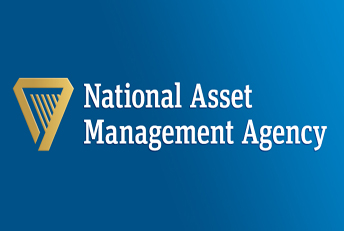
The Minister for Finance said he has asked the National Asset Management Agency to see if it can use land it controls to temper rising property prices, particularly in Dublin.
Speaking to the Oireachtas Finance Committee earlier this week, Mr Noonan said previous efforts to control prices through stamp duty had failed and new mechanisms were required this time.
He also gave TDs and Senators details of a review of the operations of NAMA, which include looking at options that could see the multi-billion euro asset management company wound down or sold off much faster than originally intended.
That could have implications for public finances and the attractiveness of the main Irish banks to investors.
"I've asked NAMA to do a review and I have set them certain objectives," Mr Noonan said. "And I'm quite neutral - I'm looking for data on which I can make decisions subsequently.
"I've asked them, for example, what would be the consequences of, at the end of 2015, taking the whole residual NAMA book and doing what IBRC did to their residual book - selling it all off in a six-month period."
Mr Noonan said people were also looking at whether it was better to sell assets quickly, or hold onto properties in the hope that values increase in the next ten years.
"Do you sell quickly and have very little upside, or do you hold out hoping that the property values go up so there is a bigger return to the taxpayers in say 2025?," he said.
A complicating factor in this was the impact it would have on Irish banks, he said, which held a large number of NAMA bonds on their balance sheets.
Mr Noonan said he was not doing anything in secret about NAMA and he had not made his mind up on what way to proceed.
A review of NAMA this year is required under the act that set up the agency, and Mr Noonan said he has posed specific questions as part of that process.
He said NAMA owned about 2,500 acres of development land, primarily in Dublin, which could even be used to reign in rising property prices.
"I've asked them if they have any suggestions on how we could work that, and would it be possible to use it as a brake on the market, but there probably isn't enough of it," he said.
He referred to efforts in the 1990s to take the heat out of the property market, with Stamp Duty used as the principal mechanism which Mr Noonan said made the situation worse.
"I think we should be looking at a different set of mechanisms this time", he said.
He suggested the Finance Committee could hold a discussion with him on this issue at some time in the future, and he said he would publish as much information on the NAMA review as he could, subject to commercial sensitivities.





